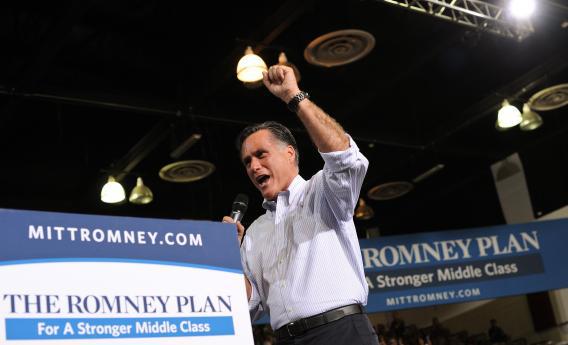The economic policy failures of the Obama administration are real enough, especially in terms of how they’ve dealt with housing and foreclosure policies, so it was a little surprising to me that Mitt Romney released a new housing policy document during the Friday afternoon news dump period.
But when you read the plan, their motivation gets clearer. This for example is just embarassing:
End “Too-Big-To-Fail” And Reform Fannie Mae And Freddie Mac: The Romney-Ryan plan will completely end “too-big-to-fail” by reforming the GSEs. The four years sincetaxpayers took over Fannie Mae and Freddie Mac, spending $140 billion in the process, is toolong to wait for reform. Rather than just talk about reform, a Romney-Ryan Administration will protect taxpayers from additional risk in the future by reforming Fannie Mae and Freddie Macand provide a long-term, sustainable solution for the future of housing finance reform in our country.
The idea of “ending” “too-big-to-fail” is a great political slogan since it’s super-popular and nobody’s ever quite sure what it means. But there’s no possible meaning under which this makes sense. Back in 2008, the feeling among leaders in both parties was that if something terrible happened to Citi or JP Morgan or Bank of America or Goldman Sachs the best policy response was to inject new public money into the capital structure rather than liquidate the enterprise. If in 2018 the same thing happens again is something different going to happen?
Reforming the GSEs has literally nothing to do with this. It’s as if the Obama administration were claiming that they’re going to end traffic jams with their new health care bill.
And yet this is a really crucial question. Obama’s answer is that, yes, something different will happen in 2018. Their answer is that under the new Dodd-Frank regulatory regime it will be possible to liquidate such an enterprise without unduly damaging the economy. Whether or not they’re right about this is a critical issue, as is whether or not there’s a better path forward. Romney’s take on the better path is this:
By replacing the Dodd-Frank Act with sensible regulation, a Romney-Ryan Administration will usher in a new era of responsible lending with sensible regulation to allow banks to approve loans to families with good credit rather than rejecting their mortgage application.
That’s just bad writing, you can’t say “sensible regulation” twice in one sentence. And more to the point, if you don’t tell the public anything about the content of the regulations you’re proposing how are we supposed to assess whether or not it’s sensible?
The trajedy here is that GSE reform is a fine idea. Conservatives have been pushing it for years and they’re right. The virtue of this proposal is that it was as right in 2002 or 1992 as it is today. But that’s also the problem. There’s nothing wrong with pushing your team’s Old Faithful policy ideas during an election, but given the economic context you’d expect to hear some ideas that are tailored to the particular circumstances of today. Instead we’re just getting a copy-and-paste approach to policy, where evergreen conservative ideas are plopped in to address whatever the topic is.
